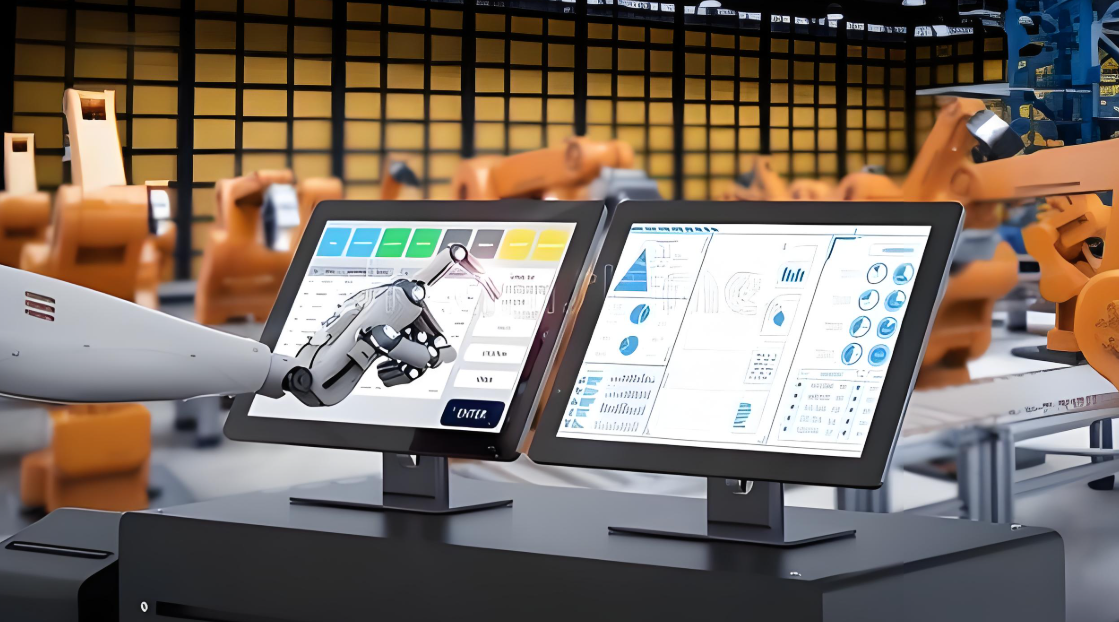As environmental regulations grow stricter, the design of self-service kiosks is evolving rapidly to meet new standards. While traditional designs prioritized functionality and cost, sustainability has now become a key focus. Companies are increasingly using recyclable, biodegradable, and non-toxic materials to minimize environmental impact at the source. To reduce energy consumption, designers are integrating intelligent control systems that enable kiosks to automatically enter energy-saving modes during idle periods, substantially reducing energy consumption.
1.Cost Considerations
Rising Material Costs
Stricter environmental standards are driving the phase-out of some traditional materials that no longer meet compliance requirements. Manufacturers must now source sustainable alternatives, which are often costlier upfront, leading to higher raw material costs.
Higher Compliance Costs
Ensuring compliance with environmental regulations requires significant investment. Companies must invest in eco-friendly equipment, operational upgrades, and green technology development, increasing overall compliance expenses.
2. Technological Innovation
Driving Green Technology Development
Environmental regulations are compelling self-service kiosk manufacturers to invest heavily in green technology. Innovations include energy-efficient chips, displays, sensors, and advanced energy management systems, all aimed at drastically lowering energy consumption without compromising performance.
Driving Circular Economy Practices
New regulations may require manufacturers to enhance the recyclability and reusability of their kiosks. This encourages the adoption of circular economy principles, such as designing products with easily disassemblable structures and using recyclable materials.
3. Green Technology’s Contribution to Industry Growth
Cost Reductions
· Energy Costs: Low-energy kiosks, equipped with energy-efficient displays, processors, and sensors, drastically lower energy consumption. For instance, vending machines that automatically switch to standby mode during off-peak hours can save hundreds of kilowatt-hours per month.
· Operational Costs: Sustainable materials often offer superior durability and resistance to wear and tear, reducing maintenance frequency and replacement costs, thereby lowering long-term operational expenses.
Market Expansion
· Policy Support: Governments are introducing policies to encourage green technology adoption, including financial subsidies, tax incentives, and green procurement initiatives. These measures lower operating costs and market entry barriers, enabling manufacturers to expand their presence.
· Emerging Market Demand: As global awareness of environmental protection intensifies, emerging markets are showing growing demand for green self-service kiosks. Leveraging green technology allows manufacturers to penetrate these markets and diversify their customer base.
Brand Enhancement
· Resonating with Eco-Conscious Consumers: The demand for eco-friendly self-service kiosks is steadily increasing. Products built with sustainable materials and low-energy components resonate with consumers’ environmental values, attracting a broader customer base and boosting market share.
· Building a Positive Brand Image: Companies that actively adopt green technologies demonstrate their commitment to environmental protection and social responsibility. This helps establish a positive brand image, enhance brand recognition, and foster greater customer loyalty.
Fostering Innovation
· R&D and Applications: The development of green technologies encourages continuous innovation in the self-service kiosk industry. By creating more energy-efficient, eco-friendly equipment and materials, companies can enhance kiosk performance and explore new business models and service solutions, driving overall industry growth.
· Collaboration and Knowledge Sharing: Green technology adoption requires cross-industry collaboration. By partnering with material suppliers, energy providers, and research institutions, manufacturers can jointly develop and apply green technologies, promoting resource sharing and mutual benefits while advancing industry innovation.
4. Market Competition
Eco-Friendly Kiosks Leading the Competitive Edge
As consumer awareness of sustainability grows, demand for environmentally friendly self-service kiosks is on the rise. Manufacturers producing compliant, eco-certified kiosks are better positioned to win consumer trust and expand market share.
Accelerated Industry Consolidation
Smaller manufacturers unable to meet environmental standards due to high costs or outdated technology may struggle to survive. This will accelerate industry consolidation, with larger, sustainability-focused companies gaining a greater share of the market.
5. Product Design and Production
Optimizing Product Design
Environmental regulations are driving manufacturers to consider the full lifecycle impact of their products, including energy use, material selection, recyclability, and waste management. This encourages the adoption of sustainable design practices and methodologies.
Streamlining Production Processes
To meet environmental compliance, manufacturers must minimize emissions and improve resource efficiency. This involves upgrading production techniques, modernizing equipment, and enhancing operational management.
Final Takeaway
The self-service kiosk market is poised for a sustainable transformation by 2030, driven by stricter environmental regulations, advanced green technologies, and shifting consumer preferences. Green technology reduces costs, improves operational efficiency, and enables manufacturers to explore emerging markets. Companies that embrace sustainable materials, energy-efficient designs, and circular economy principles are set to thrive in this eco-conscious era.
Moreover, by adopting collaborative innovation and prioritizing green initiatives, the industry can unlock new growth potential, redefine market dynamics, and lead the charge in shaping a sustainable future.







